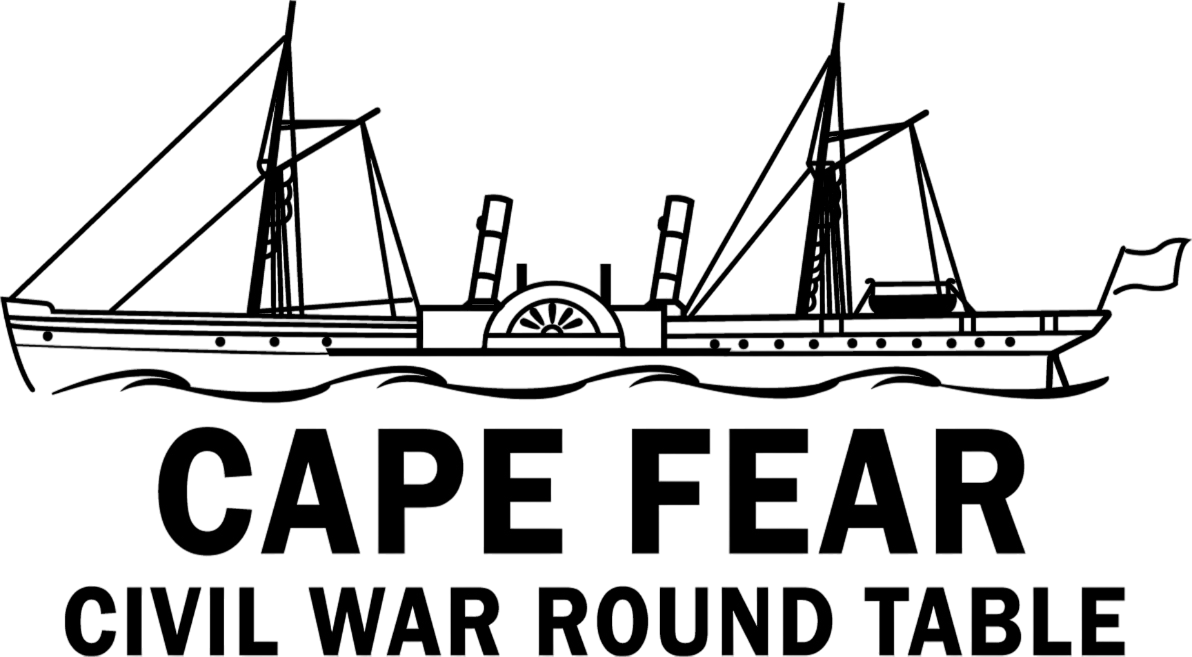A Brief History of The Cape Fear Civil War Round Table
The Cape Fear Civil War Round Table (CFCWRT) was established in 1994, with George Slaton serving as its first president until 2000. The idea for the organization took shape in the summer of 1993, when the Civil War Round Table Associates, led by renowned battlefield preservationist Jerry Russell, held a meeting in Wilmington. The event featured a keynote address by the legendary Ed Bearss and a workshop titled “How to Start a Civil War Round Table.” Inspired by this, George and several others decided to form a round table in Wilmington.
Momentum grew with the involvement of Civil War publisher Ted Savas and future authors Chris Fonvielle and Mark Bradley. Ted, then leading Savas Woodbury Publishing, would go on to publish Fonvielle’s The Wilmington Campaign: Last Rays of Departing Hope and Bradley’s The Battle of Bentonville: Last Stand in the Carolinas. Reflecting on that weekend, George recalled, “It was a momentous weekend!”
CFCWRT held its first meeting in October 1994 at the University of North Carolina Wilmington (UNCW), with Chris Fonvielle as the inaugural speaker. Now retired, Professor Fonvielle became a faculty member at UNCW and remains the leading historian of the Lower Cape Fear region from Colonial times through the Civil War. He served as the organization’s second president from 2000 to 2006.
The Round Table’s meeting locations have included UNCW, St. John’s Episcopal Church, and St. Andrew’s on the Sound Episcopal Church. Under the leadership of David Norris (2006–2010) and Bob Cooke (2010–2018), the organization continued to grow, attracting nationally known speakers and respected local historians.
From 1997 to 2005, CFCWRT organized tours to major battlefields such as Richmond, Sharpsburg, and Spotsylvania. Between 2006 and 2011, tours focused on North Carolina sites that could be reached in a single day. More recently, the group has explored local landmarks, such as the Wilmington Railroad Museum, which highlights the vital role of the Wilmington and Weldon Railroad, the Confederate supply line to the Army of Northern Virginia.
Dr. Fonvielle has led numerous tours, including hikes to the Sugar Loaf Line earthworks, Cape Fear River boat tours, and an after-dark tour of Fort Fisher, echoing the 1893 meeting between former adversaries Col. William Lamb, CSA, and Gen. Newton Martin Curtis, USA.
CFCWRT actively supports historic sites including Fort Fisher, Fort Anderson, the J. Ryder Lewis Historical Park in Carolina Beach, and the NC Maritime Museum in Southport. It has also featured speakers from Wilmington’s Latimer House, part of the Lower Cape Fear Historical Society.
In 2018, the Round Table moved to Harbor Church in Wilmington before returning to St. John’s Episcopal Church. President Bill Jayne, who took office that year, guided the organization through Hurricane Florence and the COVID-19 pandemic. As of 2024, membership has surpassed pre-2018 levels.
New programming includes a summer “member forum” where members present brief talks on chosen topics, as well as seminar-style discussions, such as a recent session on Confederate inaction during the Union landing at Fort Fisher.
On May 9, 2024, CFCWRT adopted its first-ever bylaws, drafted by an ad hoc committee and approved unanimously. These established a formal executive committee structure: five officers, five at-large members, and the immediate past president as an ex officio member. On September 12, 2024, the first executive committee was elected, with Yelena Bulatova Howell becoming president.
The 30th anniversary of the Round Table was celebrated at a dinner meeting on October 10, 2024, attended by over 50 members and guests. Past presidents Dr. Chris Fonvielle, David Norris, Bob Cooke, and Bill Jayne were present, with new president Yelena Howell presiding.
CFCWRT Past and Current Presidents at the 30th Anniversary Dinner.
From left to right: Dr. Chis Fonvielle, David Norris, Bob Cooke, Bill Jayne, Dr. Yelena Howell


